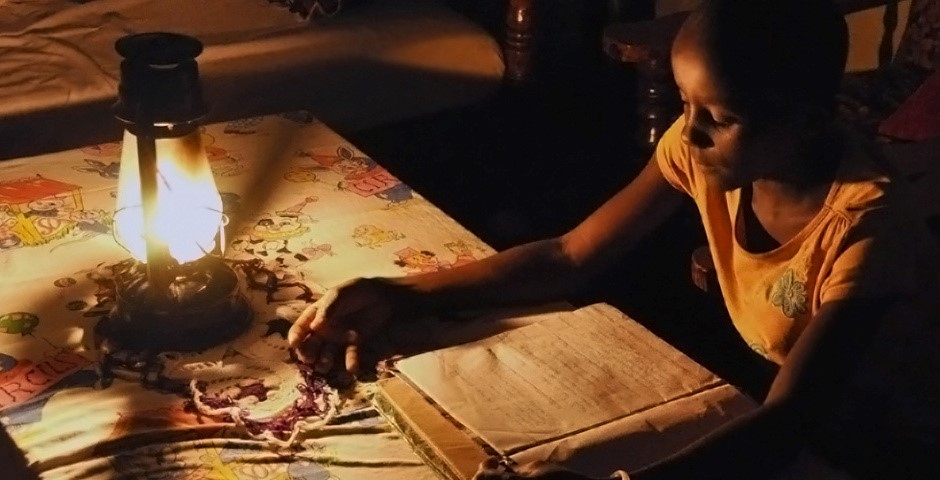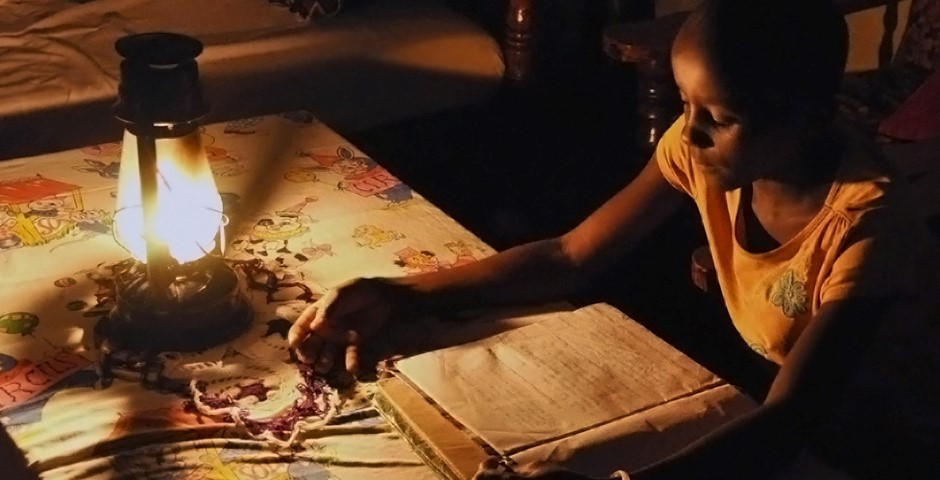Sasaenia Paul Oluwabunmi is a 2015 Delegate Speaker in the Leadership & Government Plenary Session. You can watch his speech here.

I woke up to the ‘shrill call’ of the alarm clock by my bedside; it was 2 am in the morning. I would have done anything to remain on the bed but my passion to study was higher than my desire for sleep. In the darkness, as I got up from the bed; my leg hit the reading chair, it was quite painful but I felt little pain as my leg had gotten used to hitting the chair at the same spot in the darkness. I groped for the matchbox to light the kerosene lantern I’d use to study till dawn. My movements had become mechanical as I’d done this day-in-day out for the past few months; it was perfectly normal; the abnormal would have been waking up to electricity. As I sat studying, turning page after page, I inhaled toxic fumes from the kerosene lantern that was providing the much needed light I was using to study. I felt fulfilled at my level of assimilation but unfortunately, I was ignorant of the damage done to my body. It was about a decade ago and I was studying hard to get admission into Nigeria’s top university so I could achieve my goal of being an engineer.
Sadly, this is not just my story, but that of millions of other youths in developing economies from low to middle income families, facing the brutal realities of energy poverty every day in their quest for education. Although giant strides have been made in the energy sector, the lack of effective leadership and governance culminating in the inadequate use of resources still leave millions without electricity. My ‘growing up’ experience in Nigeria [1] and my career in International Development have made me realize the far reaching consequences of energy poverty. The question is not ‘if’ but ‘how’ effective leadership and the eradication of corruption can help in resolving this huge challenge.
Elimination of corruption has an extensive role to play in ending energy poverty. Several bilateral and multilateral agencies have infused capital into the world’s poorest countries especially the developing nations to promote the growth of capital programs in the energy sector. However, a large percentage of these funds end in the pocket of corrupt politicians for their own personal benefits. This has not led to the creation of a sustainable framework which can lift these economies out of energy poverty. It is worthy of note, that most ‘struggling economies’ and regions with the world’s poorest have an inadequate energy infrastructure. Various schools of thought differ on the relationship between energy and poverty. Some state that a faulty energy sector is a direct consequence of poverty while others believe the otherwise [2]. However, extensive research has proven that without a reliable and burgeoning energy sector, adequate economic growth cannot occur and the rise out of poverty would be much slower.
It is ironical that the most of the countries without an adequate electrical infrastructure contain some of the world’s largest deposits of energy resources [3]. This can be caused by two scenarios: the first being the proliferation of ‘shell companies’ from the West that extract these countries’ natural resources without adequately ‘giving back’ to the community in terms of energy infrastructural development [3]. Some of these companies undergo operations without the payment of adequate levies and taxes by bribing the corrupt governments in power in these countries. These cascades down to the populace directly as energy poverty and indirectly through: a reduction in the countries’ gross natural resource potential and a huge financial loss [4]. Integrity in leadership and government can help stop this harmful trend by the establishment of adequate policies regarding natural resource exploitation in these countries.
The second scenario is that in which the extractive industries actually pay royalties, levies and takes to the government but these monies cannot be accounted for because more often than not, it ends up in the hands of a few corrupt government officials and what it doesn’t do is help the economic growth of these countries. Youths have a huge role to play in this regard as it is pertinent to lay demand on all extractive industries to publish all monies paid to the government in newspapers and websites; as this would go a long way in reducing corruption and making the governments more accountable to the citizenry regarding what such monies are being used for. It cannot be over-emphasized that if these financial resources are effectively utilized for developing the energy sector of these countries; energy poverty would gradually be a thing of the past.
We owe it as youths to the next generation and ourselves to have a world that has integrity as its watchword and is free of energy poverty. The future lies with us and our unborn children are depending on us to take action.

